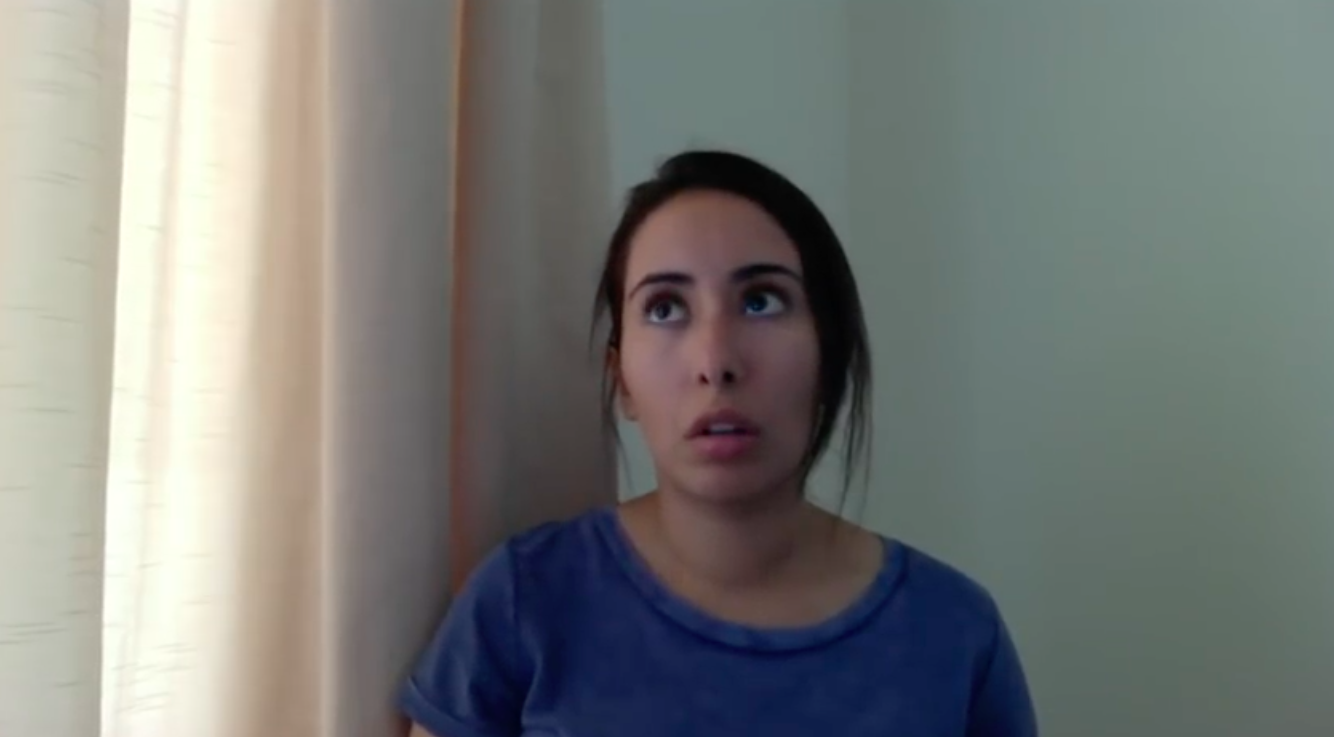Danielle Grady
May 1, 2019, LEO Weekly

A powerful leader of the United Arab Emirates should not be allowed to run his horse in The Kentucky Oaks because of allegations that he is holding his daughter hostage, a UofL professor says.
Sheikh Mohammed bin Rashid al-Maktoum, prime minister of the United Arab Emirates and ruler of Dubai, owns two horse farms in Kentucky under the prominent Thoroughbred breeding operation Godolphin. It has entered Flor de La Mar in The Kentucky Oaks this year.
He’s also portrayed as the villain in a BBC documentary, “Escape from Dubai: The Mystery of the Missing Princess,” about his daughter, Sheikha Latifa bint Mohammed al-Maktoum. She has not been heard from since March 2018 after attempting to escape to another country, according to people who claimed in the documentary to have helped her flee.
A representative at the U.S. headquarters of Godolphin in Lexington, Kentucky, said no one was available to comment. In December, Sheikh Mohammed’s office released a statement saying that Sheikha Latifa, 33, was celebrating her birthday at home with her family “in privacy and peace” after being held for ransom.
UoL law Professor Sam Marcosson, four of his students and well-known civil rights lawyer Lisa Bloom (who represented accusers of former FOX commentator Bill O’Reilly) have filed a compliant with the Kentucky Horse Racing Commission, seeking to ban Sheikh Mohammed from Kentucky horse racing until his daughter is released. Marcosson would like for the Commission to rule before Oaks, which is Thursday, May 2.
“It’s a privilege to participate in the horse racing industry, and the horse racing industry depends on having the highest reputation for integrity, and he fails that test,” Marcosson said.
On April 18, the Kentucky Horse Racing Commission responded to the complaint, declining to take action. “Although the Commission takes allegations of criminal conduct very seriously, all you have offered in support of your allegations are media reports,” John Forgy, general counsel for the Commission, wrote. “The Commission may not deny or suspend a license based on mere allegations of criminal conduct.”
Forgy wrote that Marcosson and Bloom should contact “the proper law enforcement authority” if they have more evidence.
Forgy did not respond to LEO’s requests for comment.
Marcosson and Bloom’s complaint cited a Kentucky state statute that gives the Commission the authority to ban licensees if their conduct or reputation affect the integrity of horse racing. In response, the Commission cited different state regulations and statutes that list reasons the Commission can strip or deny someone their license. Under those, it can’t refuse a license solely because of a prior criminal conviction, but it can take one away if the licensee is convicted after being approved.
Sheikh Mohammed has not been convicted of a crime, but Marcosson and Bloom contend his conduct should lead the Commission to ban him from racing. Asked whether the Commission has banned others for their conduct, Marcosson said it has, but the licensees had been convicted criminally first.
Following the Commission’s denial, attorneys now hope to compile affidavits of witnesses who claim to have seen Sheikha Latifa’s capture in order to convince the Commission. “All we can do is put the strongest possible case before them so they have no excuses, and then see how they respond” Marcosson said in an email.
“There’s a lot at stake, and that might create reluctance on their part to take strong action against him,” he said. “Having said that, I certainly hope they would be willing and they certainly should be willing to act regardless of any political or economic pressures and to stand responsibly in enforcing the statutes that they are given the authority to enforce.”
Bloom has been fighting for Sheikha Latifa’s release since this March and contacted Marcosson for help, given his local ties. Marcosson recruited UofL students involved in the Brandeis Human Rights Advocacy Program. “I realized immediately that this was an important issue,” Marcosson said, “one worth fighting for.”
In a video posted to YouTube that Sheikha Latifa recorded before her alleged escape attempt, the princess, who is one of Sheikh Mohammed’s 30 children, recounted years of restriction. It was a life of luxury, but also one in which she was prevented from leaving her home and obtaining a degree in medicine. In 2002, she said, she was beaten and confined for years after a first failed escape attempt.
“If you are watching this video, it’s not such a good thing,” she said. “Either I’m dead or I’m in a very, very, very bad situation.”